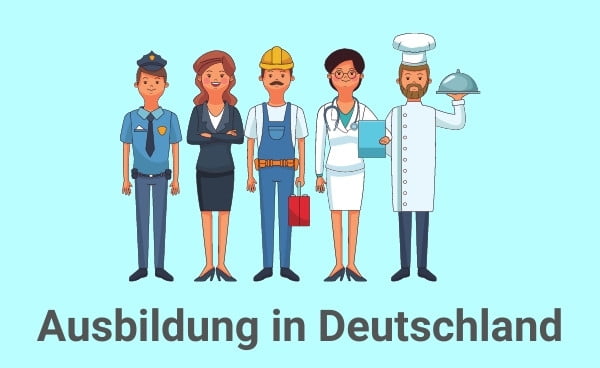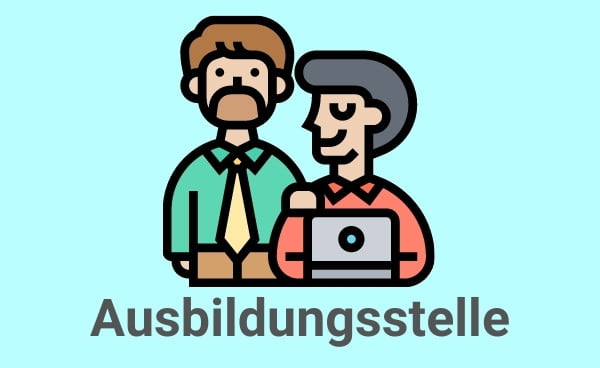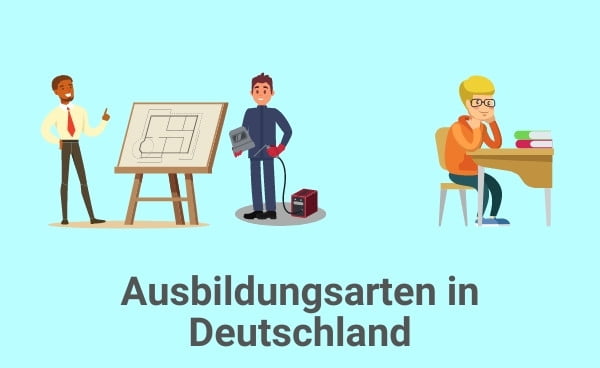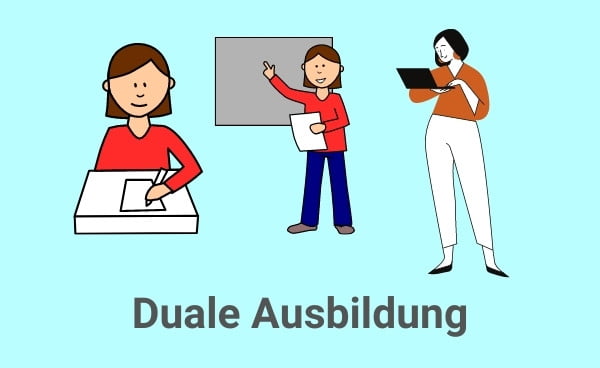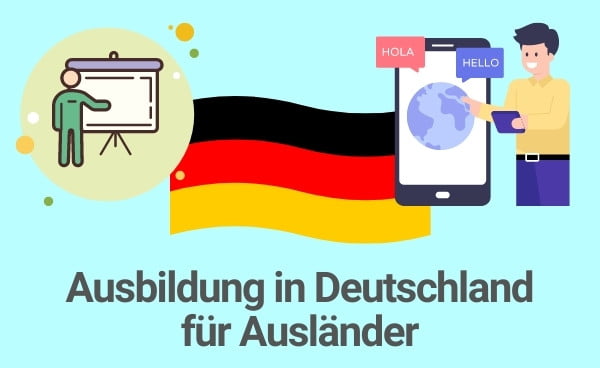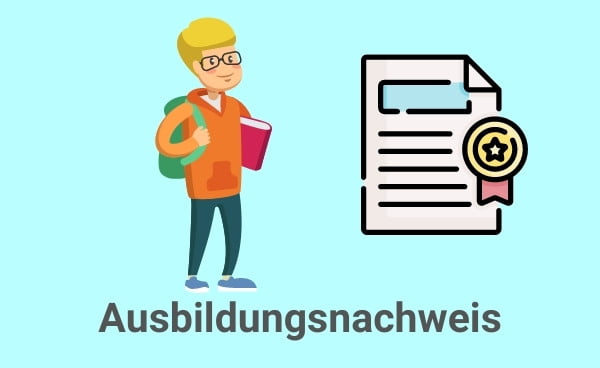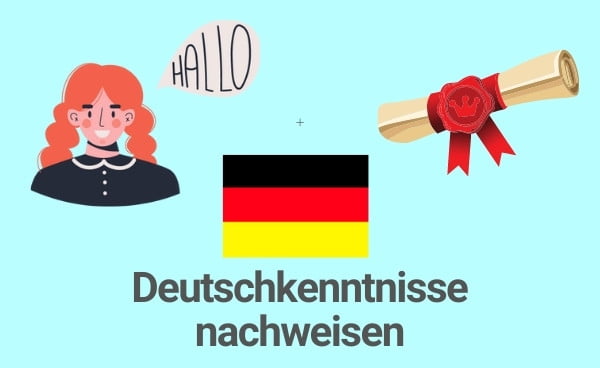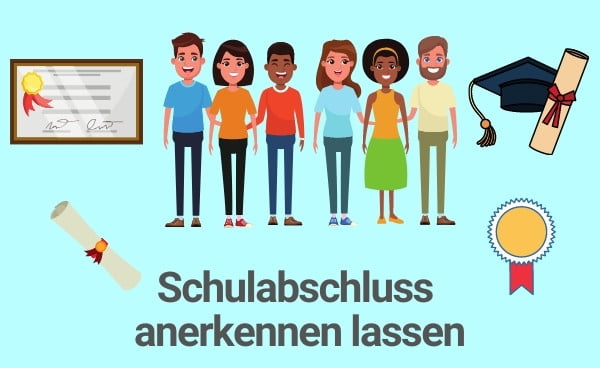Do you need more information about Ausbildung in Germany or vocational training in Germany? Here you will find all you need to know about the vocational training that Germany is well known for.
I have built up a good relationship with one of my neighbours. Through this, I learned a lot about the vocational training system in Germany.
Coming from abroad, the “Ausbildungssystem” is something you will most likely have heard about Germany in the past.
Let’s dive deeper into every aspect of the vocational training.
Key takeaways
1) Vocational training in Germany is an educational programme that provides in-depth knowledge and skills. Its completion qualifies for a specific occupation.
2) In 2020, there were 324 recognised training occupations in Germany.
3) You cannot pursue certain occupations in Germany if you do not have the required training qualification.
4) There are 3 types of vocational training in Germany: dual vocational training, school-based training, dual vocational qualification.
5) Normally, the Ausbildung period lasts between 2 and 3 years.
6) Apprenticeship in Germany is paid. See below how much.
7) Foreigners can apply for vocational training in Germany. They have to prove a certain level of German language skills. They must also have a basic amount of money for subsistence.
Topics covered in this article
Vocational training in Germany? Start early >>
Why is professional training in Germany important? >>
Types of vocational training >>
How long does occupational training in Germany take? >>
Is Ausbildung paid in Germany? >>
Can foreigners apply for vocational training? >>
Requirements for Ausbildung for foreigners >>
Any age limit for professional training? >>
Future after Ausbildung >>
Possible to have Ausbildung in English, when you are in Germany? >>
Ausbildung courses in Germany for foreigners >>
List of vocational training courses in Germany >>
How to apply for Ausbildung in Germany? >>
Thinking about your vocational training in Germany? Start early.
When I wrote this article, I talked to one of my neighbors. He has recently finished his first “Ausbildung” in Germany. And then went to university.
Germany provides you with two different options to prepare for your future profession after school. Vocational training is one of them.
My neighbor, for example, finished his “Ausbildung” in Germany first as a Graphic Designer and afterward studied at a university.
What are the most popular training occupations in Germany?
The other day, I searched out of curiosity, which is the most demanded profession in Germany. Germany did have 324 recognized training professions in 2021.
The most popular “Ausbildungsberufe” (training professions) in Germany are:
- retail salesperson
- office management assistant
- salesperson
- automotive mechatronics technician
- medical assistant
- or IT specialist
The above is based on a study conducted by Statista.
It would be best not to forget that we still talk about Germany. In many other countries, it’s pretty standard that people start working directly in their profession.
Ausbildung first
However in Germany there are some conditions such as doing vocational training and the so-called “Ausbildung” first.
It would help if you started to think about your vocational training soon enough. This is because you need to apply for a so-called “Ausbildungsstelle” (apprenticeship training) ahead of time.
The school year starts traditionally in Germany in September every year.
My neighbor applied nine months ahead of time at various companies. He had several job interviews before finding his final employer.
Why is Ausbildung / vocational training in Germany so important?
In my opinion, Ausbildung is very important. It offers a professional way to get prepared for a profession, almost independently of the “Schulabschluss” (graduation).
My neighbour chose this path, although he obtained his Abitur (equivalent of a high school diploma in Germany).
The reason was that he wanted to learn his profession in practice. Before concentrating on the more theoretical ideas taught at universities.
For other students that did not finish their school with an “Abitur” or “Fachabitur” (professional baccalaureate), it’s the best way to develop essential skills for their professional path.
Work and school combined
Most common is to finish the Ausbildung in a dual-track training program. This consists of almost full-time work and school one or two days a week.
School is there to help you learn more about the theoretical aspects of your chosen profession.
From what I’ve learned from my neighbor, the vocational training in Germany prepares you in an excellent way for your future profession.
And you get much time to learn everything essential.
You must take a theoretical and practical exam at the end of your training period, the so-called “Ausbildungszeit”.
After passing it, you get a certification that officially states that you can work in your chosen profession.
What are the types of occupational training in Germany?
First, I want to explain three types of vocational training available in Germany.
You can find more about those on the website of the “Arbeitsagentur”, Germany’s official job center agency.
By the way, the BIBB (Bundesinstitut für Berufsbildung) is another valuable source to learn more about professional training in Germany.
Dual vocational training in Germany
The dual vocational training in Germany is the most common one.
My neighbor passed his final exams after 2 ½ years. He had to go to school twice a week during his first year. During his second and third years, he was required to attend school one day a week.
He worked full-time in a marketing agency as a graphic designer the rest of the time.
That way, he could learn his profession from the ground up.
About one-third of all students graduating from secondary school in Germany enter a vocational training program (according to BIBB).
Of those students, two-thirds choose the dual vocational career path in Germany.
Students who undergo this dual vocational training in Germany are called “Auszubildende” or “Azubis,” meaning trainee or apprentice in English.
School based Ausbildung
About one-third of those students who start vocational training begin their “Ausbildung” in a single-track, school-based VET.
VET = vocational education and training program
This “Ausbildung” is focused on education at school only.
Professions that rely on this single-track training are:
- healthcare
- social services
- foreign languages
- engineering
- IT development
In addition to that, there are specific “Berufsfachschulen” or “Berufsoberschulen” that offer school-based VET only.
This education usually takes two years, depending on the career path you choose to take.
Dual vocational degree
If you are eligible to attend university, Germany does offer another, practical-focused way to study. Those “Duale Studiengänge” (dual study programs) require you to attend university lectures and work for several months throughout the year.
It combines academic studies with experience in a company and vocational training. This unique approach might be why those programs are very popular in Germany. And this compared to the purely vocational training at university.
You will be able to gain a bachelor’s/master’s degree in the end.
How long does Ausbildung take?
In Germany, a regular “Ausbildung” (on-the-job training + education) at a vocational school called “Berufsschule” lasts between two to three years. Depending on your pre-qualification.
Suppose you either have your “Abitur” or “Fachabitur” in Germany or have already completed vocational training.
In that case, you are eligible to shorten your dual-track vocational training to two years.
If you have neither of these, your “Ausbildung” can take up to three years.
You will take an essential exam called “Zwischenprüfung” by accomplishing your vocational training.
At the end of the vocational training in Germany, you have to take your “Abschlussprüfung” (final exam), as my neighbor mentioned.
Both exams include a practical and theoretical part, making the “Ausbildung” different from all other education in Germany.
Is apprenticeship in Germany paid? How much?
Yes, you will get paid during your “Ausbildungszeit” (training period) in Germany. Your salary is based on the existing “Tarifvertrag” (collective agreement) of your industry.
The differences can be pretty significant, and it might even depend on the region you live in.
There is a monthly minimum wage set by the “Bundestag” in Germany for the year 2022.
It depends on the year you are in:
- First-year: 585 Euro
- Second-year: 690 Euro
- Third-year: 790 Euro
- Fourth-year: 819 Euro (if at all applicable)
Is there a collective agreement in place? Well, depending on the industry you are working in, those monthly minimum wages might differ.
However they can’t be lower than the numbers mentioned above.
My neighbor learned his profession as a graphic designer, or “Mediengestalter”. He told me that he earned around 930 Euros in his first year of training.
So as you can see, there can be some significant differences.
In average, the salary in the first year of the vocational training in Germany is around 835 Euros per month.
Can foreigners apply for Ausbildung?
Yes, foreigners from all countries can apply for an “Ausbildung” in Germany. There are some basic requirements like having a minimum language knowledge in German at a B1 level. The reason for that is that all exams are held in German only.
The other requirement is to have at least finished 9 or 10 years of school education.
EU-citizens
EU citizens have an additional advantage. Reason: they are not required to have any visa status in Germany as a foreigner.
Vocational training in Germany for non-EU citizens
Non-EU citizens from Switzerland, Liechtenstein, Island, or Norway do not require a visa for their vocational training.
They are the exception from the rest of the world that will need a visa to start vocational training.
Some occupations will require you to undergo an approval process, “Vorrangprüfung,” from the Federal Employment Agency.
This is the final authority that will decide whether you get your visa or not.
Choosing a profession that does not require an approval procedure increases your chances of getting a visa.
The basic requirements are:
- a diploma from your school
- and basic language skills at a B1 level
US citizens and Canadian citizens
I know that applying for professional training might not be accessible abroad. As mentioned above, you can still apply for vocational training in Germany as a US citizen or Canadian citizen.
What are the requirements for vocational training in Germany for foreigners?
I already mentioned some of the requirements above. Let me explain to you all of them based on my recent research here to you in detail.
School Diploma for vocational training in Germany
The minimum requirement here is that you finish nine to ten years of school education in your country. And that you have a diplona.
If you attend school for nine years or more without having a degree, you cannot start your Ausbildung.
It always helps to translate the diploma into German by a verified translator.
Language Requirements for vocational training in Germany
You need to prove that you at least have a basic knowledge of German at the B1 level. This is because all tests, including the semi-final and final exams, are provided and written in German only. Without the B1 certification, you will not be eligible for starting a vocational training in Germany.
Valid visa (for non-EU citizens) for Ausbildung
Non-EU citizens have to apply for a work-related visa in Germany first before starting their “Ausbildung” in Germany. Exception from this rule: citizens of Switzerland, Island, Liechtenstein, and Norway.
Citizens of all other countries are not required to apply for the visa first. They can start searching for an “Ausbildungsplatz” (training position) right away.
Independent means of subsistence during job training in Germany
In addition to the three requirements mentioned above, you must prove that you can support yourself. The minimum is around 600 – 700 euros per month.
However, my neighbour had a good tip on this subject. He mentioned that this can depend on the city you live in.
Foreigners must prove that they have at least 861 euros per month at their disposal. If additional training fees are required, they will be added to this amount.
Health insurance during vocational training in Germany
As with any application for an “Aufenthaltstitel” in Germany, you have to prove that you have health insurance in Germany.
Need more information on health insurance in Germany? Read my extensive article here:
Accommodation during apprenticeship
The last requirement coming out of the visa process, you need to show them that you live in Germany.
Therefore you need a valid rental contract. There different options available. I explained this in my article about registration in Germany.
Is there any age limit for Ausbildung?
In theory, there is no age limit for “Ausbildung” in Germany. There is only a minimum required age of 15.
However, in most cases, foreigners entering Germany for their vocational training are required to be at least 18 years old.
On the other hand, there is no maximum age for applying and starting your apprenticeship in Germany. But it might be hard to compete with young students if you are 40 or older.
In the end, it all depends on your employer – if they offer you an “Ausbildungsplatz,” your age will not play a considerable role during the vocational training.
My neighbor told me that there were a couple of “Azubis” (trainees) in his class older than 35. And nobody had a problem with that.
What can you do after you finish your vocational training in Germany?
After you finish your “Ausbildung,” you can start working full-time in your profession. There will always be some career changers, called “Quereinsteiger,” working with you.
Anyhow you will soon notice the difference between them.
And you as you had two to three full years of training before actually starting to work.
Is it possible to have Ausbildung in English?
Unfortunately, you cannot have “Ausbildung” in Germany in English. Of course, some international companies only communicate in English.
My neighbor, for example, works at an international marketing agency that is based in Toronto.
He told me that basically, all communication is in English.
His company offers a few “Ausbildungsplätze” in Germany. So basically, you can say that the practical part is in English only.
The caveat is that both exams and vocational school are all held in German only.
For the exams, you may be allowed to use a dictionary, but you will have to ask for permission first.
Which Ausbildung courses in Germany are available for foreigners?
There are about 350 different types of “Ausbildung” courses in Germany. And, in theory, all of them are available for foreigners.
It only depends on your future employer whether he offers you an “Ausbildungsplatz” after you apply for it.
See below in the application or “Bewerbung” part.
Even if you have various options for an “Ausbildung,” you might encounter some difficulties along the way.
The recommendation might be to find a profession that suits you for which you will not need a “Vorrangprüfung”.
Vorrangprüfung = approval exam
The federal employment agency (Arbeitsagentur) will check your application for some professions. They check whether you are pre-qualified or not, for special trainings, like becoming a nurse.
Where can I find a list of vocational training courses in Germany?
According to the website Make it in Germany, the best sources for finding dual vocational training in Germany are:
- The job search from the Arbeitsagentur (Job Center). Search for “Ausbildung” and your specific location where you are living, and you will usually find many offers. The results listed here are from companies that offer “Ausbildungsplätze” in Germany.
- Another good website that even offers an app for their services is Lehrstellenradar. Make sure that you leave the checkmark that says “Lehrstellen” active. Deactivate the one that says “Praktikum,” and search within the area you live.
- The IHK, the internationally highly respected “Industrie und Handelskammer” in Germany, does offer another search functionality. Unfortunately, you have to register there first before you can start your “Ausbildungsplatzsuche.”
By the way, if you would like to learn more about the various “Ausbildungsberufe” in Germany, you should take a look at the following glossary here provided by ausbildung.de.
How to apply for occupational training in Germany?
Applications for an “Ausbildung” in Germany are similar to a regular job application.
Writing a “Bewerbung” (application) can vary a lot from the country you are currently living in.
Hearing about the differences from my neighbor, it was astonishing what information you need to provide within the application.
So let me list the critical information here:
- Personal information: Name, address, and contact information
- Make sure you are letting a future employer know about your school education in detail and in chronological
- Deliver any references you might have for any internships you might have had in your country
- Provide prove for your language capabilities. An official certificate from the school where you completed your language training is sufficient. This certificate must meet the requirements of the CEFR (Common European Framework of Reference for Languages), e.g. German B1.
- If you have any special interests, mention those as well. It can be beneficial if you already have some interests in your professional field that you can prove. My neighbor also let me know that it can be beneficial to be socially or politically active.
Other formalities are:
Write a cover letter stating your reason for applying for this exact position. The more specific you can be, the more likely your future employer will look at your application.
Also, include a resume that lists your previous schooling as well as private interests and language skills.
Nowadays, this letter of application is almost exclusively sent by email. Information such as your age should not be missing. A photo is no longer decisive. For some years now, companies no longer expect a photo in an application.
So it should not be an Instagram snapshot ;-). However, a photo can help you stand out from the large number of applicants. In that case, however, make sure that the photo is as up-to-date as possible, appropriate, and that it matches you.
Additional questions about Ausbildung in Germany
During my research, I tried to answer some additional questions.
Is it possible to do a vocational training with an A2 language level?
If you have German A2, you currently have good chances of getting an apprenticeship. You will need B1 until the start of your training. However many employers and vocational schools help foreign applicants with special language preparation.
Why vocational training?
With vocational training in Germany, foreign applicants also receive a German qualification as skilled workers. With a successful qualification, skilled workers can:
- continue to work in the German company
- gain further qualifications (for example, as a master craftsman or as part of a university degree)
- become self-employed
- or return to their home country to work there with the foreign certification
Even if finding an “Ausbildungsplatz” in Germany might not be easy, it’s worth the effort from my perspective.
The German “Ausbildung” is recognized almost everywhere and popular with employers.
Their dual vocational training system is well known in many countries and highly respected as it’s almost unique worldwide.
With a finished vocational training and a degree, you can even start studying at a German university. To learn even more about your profession.
From my perspective, vocational training is a solid education in Germany from what I got to learn from my neighbor. And it opens the doors for your future development.
USEFUL INFORMATION ABOUT JOBS AND APPLICATION IN GERMANY
___
> Working In Germany As A Foreigner From A Non-EU Country
> 15 Best Job Portals In Germany
> Most Demanded Jobs In Germany
> How To Get A Job In Germany
> How to Write a German CV
> German CV Photo: Requirements You Should Know
> How to Write the Perfect German Cover Letter
> Documents for job application in Germany
> Reference Letter in Germany
> Foreign Degree Recognition In Germany


